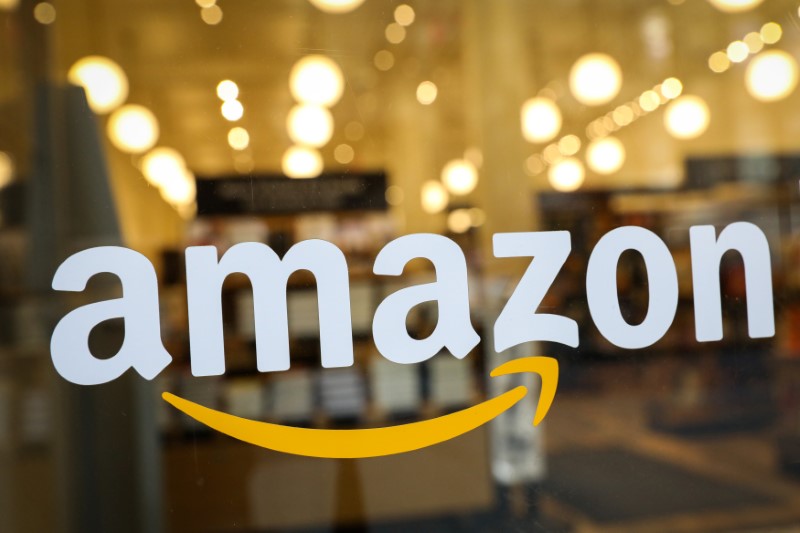(Reuters) - Amazon.com Inc (NASDAQ:AMZN) plans to open dozens of grocery stores across the United States as it looks to expand in the food business, the Wall Street Journal reported on Friday, citing people familiar with the matter.
Amazon is also exploring a strategy of strengthening its new supermarket brand by purchasing regional grocery chains that operate at least a dozen stores, according to the report.
Shares of grocers such as Walmart (NYSE:WMT) were down 0.99 percent while Costco (NASDAQ:COST) traded up 0.21 percent up. Kroger (NYSE:KR) traded down over 4 percent. Amazon was up 1.68 percent.
Amazon, which bought the upscale Whole Foods chain for $13.7 billion in 2017, is now in talks to open grocery stores in shopping centers in San Francisco, Seattle, Chicago, Washington, D.C., and Philadelphia, the WSJ report said.
The online retail giant plans to open its first store in Los Angeles as early as the end of the year, and has already signed leases for at least two other grocery locations with openings planned for early next year, the Journal reported.
The new stores were not intended to compete directly with Whole Foods, according to the report.
Amazon declined to comment.
"We're not surprised," said David Bujnicki, in charge of investor relations at Kimco Realty Corp (NYSE:KIM) , an owner or manager of 437 mostly grocery-anchored shopping centers.
Amazon is slow but deliberate when rolling out new brick and mortar concepts, he said. He added that a new grocer would validate the need for physical stores, a business that has been hit hard by e-commerce, whose surge Amazon has led.
Amazon rival Walmart, the largest grocer in the country, has not been caught off guard as it has been preparing for competition to heat up for nearly two years, according to a source with knowledge of the company's business plans.
"Their (Amazon's) ambitions in this space have been known for a long time," the source said.

The prospect of more competition has spurred Walmart to action, the source said. Walmart will have grocery pickup service at 3,100 stores by next January, and offer grocery deliveries from about 800 more stores by the end of the year, bringing the total number of stores offering delivery service to 1,600 stores.